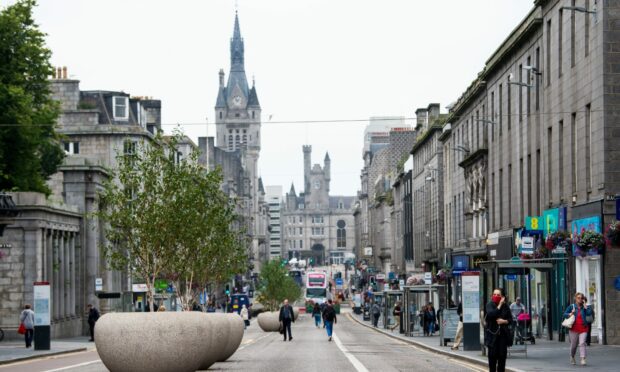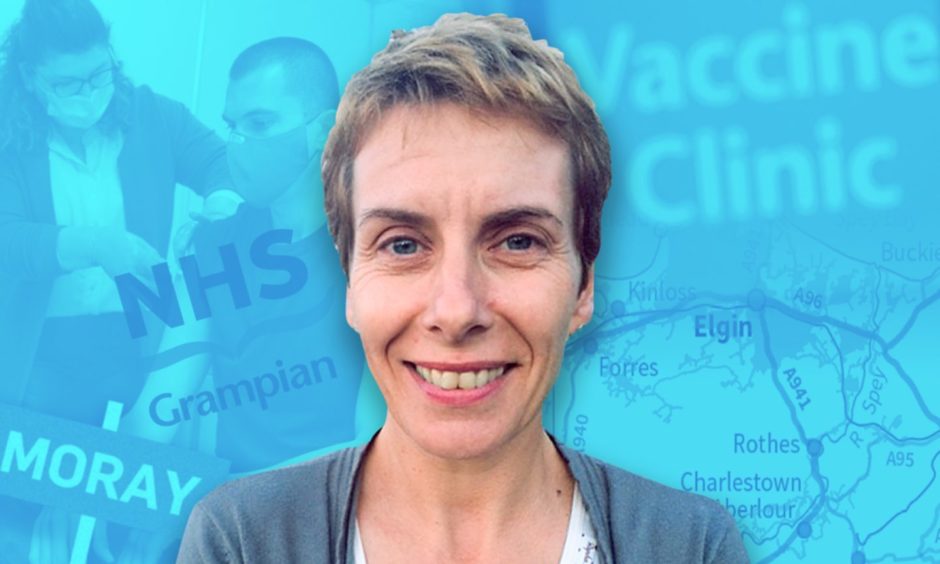New figures from the World Health Organisation show Scotland is now home to seven of the highest Covid ‘hotspots’ in Europe.
NHS Grampian is the tenth worst-hit region in Europe with 553 cases per 100,000 people, according to World Health Organisation (WHO) figures.
Six other Scottish health boards are also in the top 10: Greater Glasgow and Clyde, Lothian, Tayside, Fife, Lanarkshire and Ayrshire and Arran.
A further 2,372 new cases of Covid-19 were recorded across Scotland on Monday, with 12.6% of all tests positive.
Jillian Evans, head of health intelligence at NHS Grampian, said the Delta variant “took hold” in Scotland and is “spreading really fast”.
National clinical director Jason Leitch told BBC Radio’s Good Morning Scotland programme that the “fundamental” reason for the figures was the spread of the more transmissible variant.
The North East and North West of England also feature in the worst-hit regions across Europe.
‘Critical failures’
Scottish Conservative leader Douglas Ross said the SNP’s “critical failures” in controlling Covid-19 have been “ruthlessly exposed”.
He said: “Scotland is now home to six of Europe’s top ten Covid hotspots and the Test and Protect system is completely overwhelmed.
“That is a shameful record and one which clearly shows SNP ministers have well and truly taken their eye off the ball in fighting the virus.
“It would be completely unforgivable if the SNP’s failure to get on top of rising cases, their failure to support an effective Test and Protect system and their failures in getting vaccines in people’s arms fast enough meant further devastating delays for individuals and businesses.
“The SNP must relentlessly focus on getting on top of current outbreaks to guarantee Scotland will move to Level Zero on July 19.”
Delta variant
Prof Leitch confirmed that Scotland had some of the “highest numbers” across the UK and Europe, mainly due to the spread of the Delta variant.
He said: “It’s got seeded into our biggest, dense city in Glasgow and we’ve got less natural immunity because we haven’t been at the top of this league table throughout the pandemic.
“It’s not a league table I want to top and I want to get us off there as quickly as we possibly can.”
However, he said the Scottish Government was “relatively optimistic” that hospital admissions and deaths were not rising at the same rates they were earlier in the pandemic due to the benefits of vaccination.
He added: “We have to watch the translation of those cases into hospitalisations.
“Hospitalisations are now going up a little, but they’re not at the levels they were in the first and second waves.
“Intensive care is stable – [there are] really low numbers of Covid cases in intensive care.”
Lower immunity
Ms Evans put the situation in Scotland down to the spread of the very infectious Delta variant which she said “took hold” in the Central Belt.
She added that the Scottish population will have lower immunity than south of the border, where more people had already contracted the virus earlier in the pandemic.
Ms Evans said: “The Delta variant took hold and is spreading really fast.
“How contagious it is is just shocking.
“It’s really important we try to keep the spread at bay as much as we can.”
Ms Evans said health professionals “simply don’t know enough” about the long-term effects of the virus and the impact of long Covid.
A “substantial number” may get symptoms longer than 12 weeks and some longer than a year, she added.
‘Significantly more transmissible’
The Scottish Government puts the steep rise in cases down to the “lower population immunity” compared to England.
It believes this makes the population “potentially more susceptible” to the Delta variant.
A spokesman said: “As the health secretary and first minister have said, the Delta variant which accounts for the overwhelming bulk of all new cases, is significantly more transmissible than previous variants and is helping to driving the recent steep rise in cases.
“In addition, there is around eight to 10% lower population immunity in Scotland, comparted to England and Wales, as fewer Scots had the virus in earlier stages, which makes the population potentially more susceptible to the Delta variant.”



